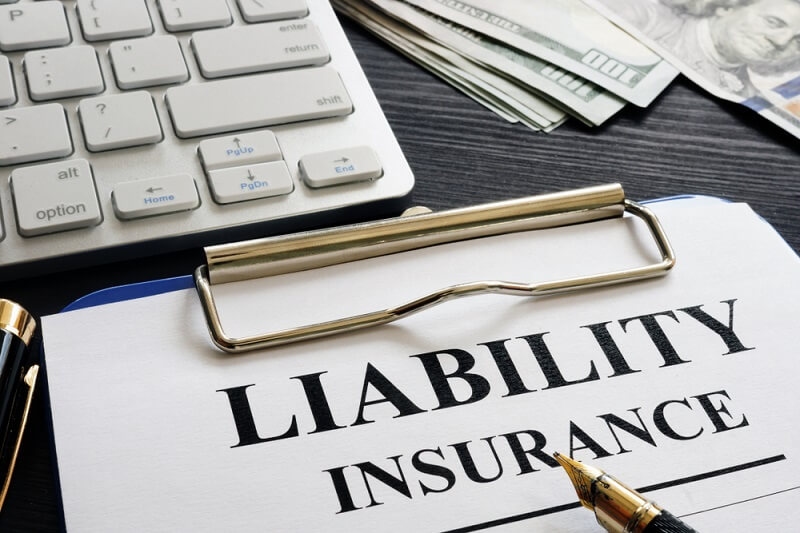
Running a business presents challenges daily, not least unexpected legal claims. Whether you run a business from home or manage a business with employees, no business owner can afford not to think about Business Liability Insurance: What You Need to Know.
Until you get sued for a customer injury, property damage, wrongful allegation, or any combination, you'll likely dismiss the whole idea or assume that "nothing will happen to me." But one nasty lawsuit can alter years of hard work in a matter of weeks. This business liability insurance guide will break down the core principles, coverage tips, and experience-based information that all business owners need to know to protect themselves and their business and remain compliant.
Business liability insurance is a type of commercial insurance that protects a business from legal costs and damages associated with third-party claims. These claims can include bodily injury, property damage, libel, slander, or any incidents related to a product.
Liability insurance can pay for:
In short, liability insurance will legally protect a business's operations so that a single mistake does not lead to financial disaster.

Although you may think your operations are relatively safe, every business has liabilities (especially small business risks), and you don’t have to be a major corporation to face a lawsuit.
Without general liability, you could be personally liable for thousands (if not millions) in damages and legal fees.
General liability coverage is the most prevalent type of liability insurance businesses use. It is the foundational layer of coverage for the majority of risks.
General liability insurance is critical coverage for almost all industries. Retailers, consultants, contractors, manufacturers, and even online service providers need this coverage.
While general liability coverage is crucial, it may not be enough depending on the nature of your business. There are additional types of commercial policies to consider:
Also known as Errors and Omissions (E&O), this protects service-based businesses against negligence, malpractice, or misrepresentation claims.
Best for:
Covers claims related to defective products causing injury or damage.
Best for:
Covers data breaches, cyberattacks, and information theft.
Best for:
Protects against lawsuits from employees related to discrimination, wrongful termination, or harassment.
Best for:
Provides extra coverage once your standard policy limits are exhausted.
Best for:
A tailored approach using multiple policies provides comprehensive legal protection for business operations.
When chosen correctly, liability insurance offers more than claim coverage—it delivers security, credibility, and stability.
These advantages make liability insurance a cornerstone in any solid risk management strategy.
Not all policies are equal, and a one-size-fits-all plan may leave critical gaps. Here’s how to choose a business liability insurance plan that fits your needs.
You can start by evaluating your industry and specific exposures.
Most general liability policies start at $1 million per occurrence and $2 million in aggregate. But your needs may vary based on:
Don’t just look at price—compare:
Enhance protection with optional endorsements like
You can consult an experienced insurance broker to help you navigate the options.
Mistakes in your coverage decisions can have significant consequences. Here are pitfalls every business owner should watch for:
Choosing the minimum limits may save money in the short term, but it won’t help much in a significant claim.
Many policies have exclusions for specific industries or activities—read the fine print carefully.
As your business grows, so do your risks. You can constantly reassess your coverage when adding employees, services, or new locations.
Your homeowner's or personal auto insurance won’t cover business-related activities. Get a commercial policy tailored to your operations.
Avoiding these mistakes helps ensure your policy works when you need it.
If an incident happens, filing a claim quickly and correctly ensures smoother processing.
Timely and accurate filing increases the chance of your claim being approved without complications.
You're not immune to liability risks even if you run your business from home or online. Many digital-first companies face unique challenges.
Homeowners' insurance won’t protect against business-related claims. That’s why securing a business liability insurance guide is crucial, even if your business never leaves the living room.
While exact pricing varies, premiums depend on factors like
Small businesses may pay a few hundred dollars annually for basic general liability insurance, while larger or high-risk companies will pay more.
To lower your premium:
Getting quotes from several providers ensures you find the proper price-to-coverage ratio.
Once you’re insured, here’s how to make sure your policy remains practical and up-to-date:
Review your policy every year—or after any significant business change.
In case of a claim, accurate documentation is your best defense.
Accidents are more likely when employees aren’t trained properly.
Make sure your coverage meets your jurisdiction’s requirements.
Being proactive keeps your coverage working in your favor, not just on paper.
Owning a business offers fantastic rewards but comes with real risks. Understanding Business Liability Insurance: What Every Business Owner Should Know helps to prepare for the unexpected. Whether you manage small business risks, provide services to clients, or sell products, liability insurance is the safety net that allows your business to continue operating and allows you to develop yourself and your future.
With the right combination of general liability and industry-specific coverage and some coverage tips, you will be able to grow your business while feeling confident that you are protected in every possible direction.
This content was created by AI